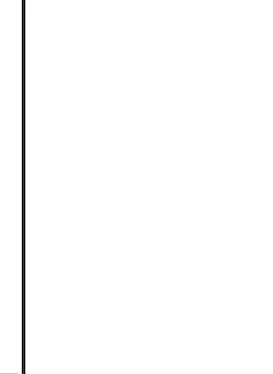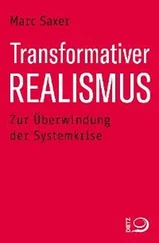Mark Fisher - Capitalist Realism - Is There No Alternative?
Здесь есть возможность читать онлайн «Mark Fisher - Capitalist Realism - Is There No Alternative?» весь текст электронной книги совершенно бесплатно (целиком полную версию без сокращений). В некоторых случаях можно слушать аудио, скачать через торрент в формате fb2 и присутствует краткое содержание. Жанр: Старинная литература, на английском языке. Описание произведения, (предисловие) а так же отзывы посетителей доступны на портале библиотеки ЛибКат.
- Название:Capitalist Realism: Is There No Alternative?
- Автор:
- Жанр:
- Год:неизвестен
- ISBN:нет данных
- Рейтинг книги:4 / 5. Голосов: 1
-
Избранное:Добавить в избранное
- Отзывы:
-
Ваша оценка:
- 80
- 1
- 2
- 3
- 4
- 5
Capitalist Realism: Is There No Alternative?: краткое содержание, описание и аннотация
Предлагаем к чтению аннотацию, описание, краткое содержание или предисловие (зависит от того, что написал сам автор книги «Capitalist Realism: Is There No Alternative?»). Если вы не нашли необходимую информацию о книге — напишите в комментариях, мы постараемся отыскать её.
Capitalist Realism: Is There No Alternative? — читать онлайн бесплатно полную книгу (весь текст) целиком
Ниже представлен текст книги, разбитый по страницам. Система сохранения места последней прочитанной страницы, позволяет с удобством читать онлайн бесплатно книгу «Capitalist Realism: Is There No Alternative?», без необходимости каждый раз заново искать на чём Вы остановились. Поставьте закладку, и сможете в любой момент перейти на страницу, на которой закончили чтение.
Интервал:
Закладка:
For this reason, it is a mistake to rush to impose the individual ethical responsibility that the corporate structure deflects. This is the temptation of the ethical which, as Zizek has argued, the capitalist system is using in order to protect itself in the wake of the credit crisis -the blame will be put on supposedly pathological individuals, those'abusing the system', rather than on the system itself. But the evasion is actually a two step procedure -since structure will often be invoked (either implicitly or openly) precisely at the point when there is the possibility of individuals who belong to the corporate structure being punished. At this point, suddenly, the causes of abuse or atrocity are so systemic, so diffuse, that no individual can be held responsible. This was what happened with the Hillsborough football disaster, the Jean Charles De Menezes farce and so many other cases. But this impasse -it is only individuals that can be held ethically responsible for actions, and yet the cause of these abuses and errors is corporate, systemic -is not only a dissimulation: it precisely indicates what is lacking in capitalism. What agencies are capable of regulating and controlling impersonal structures? How is it possible to chastise a corporate structure? Yes, corporations can legally be treated as individuals -but the problem is that corporations, whilst certainly entities, are not like individual humans, and any analogy between punishing corporations and punishing individuals will therefore necessarily be poor. And it is not as if corporations are the deep-level agents behind everything; they are themselves constrained by/ expressions of the ultimate cause-that-is-not-asubject: Capital.
Nothing could be a clearer illustration of what Zizek has identified as the failure of the Father function, the crisis of the paternal superego in late capitalism, than a typical edition of Supernanny. The program offers what amounts to a relentless, although of course implicit, attack on postmodernity's permissive hedonism. Supernanny is a Spinozist insofar as, like Spinoza, she takes it for granted that children are in a state of abjection. They are unable to recognize their own interests, unable to apprehend either the causes of their actions or their (usually deleterious) effects. But the problems that Supernanny confronts do not arise from the actions or character of the children -who can only be expected to be idiotic hedonists -but with the parents. It is the parents' following of the trajectory of the pleasure principle, the path of least resistance, that causes most of the misery in the families. In a pattern that quickly becomes familiar, the parents' pursuit of the easy life leads them to accede to their children's every demand, which become increasingly tyrannical.
Rather like many teachers or other workers in what used to be called 'public service', Supernanny has to sort out problems of socialization that the family can no longer resolve. A Marxist Supernanny would of course turn away from the troubleshooting of individual families to look at the structural causes which produce the same repeated effect.
The problem is that late capitalism insists and relies upon the very equation of desire with interests that parenting used to be based on rejecting. In a culture in which the 'paternal' concept of duty has been subsumed into the 'maternal' imperative to enjoy,
71
it can seem that the parent is jailing in their duty if they in any way impede their children's absolute right to enjoyment. Partly this is an effect of the increasing requirement that both parents work; in these conditions, when the parent sees the child very little, the tendency will often be to refuse to occupy the 'oppressive' function of telling the child what to do. The parental disavowal of this role is doubled at the level of cultural production by the refusal of 'gatekeepers' to do anything but give audiences what they already (appear to) want. The concrete question is: if a return to the paternal superego -the stern father in the home, Reithian superciliousness in broadcasting -is neither possible nor desirable, then how are we to move beyond the culture of monotonous moribund conformity that results from a refusal to challenge or educate? A question as massive as this cannot of course be finally answered in a short book such as this, and what follows here will amount to a few starting points and suggestions. In brief, though, I believe that it is Spinoza who offers the best resources for thinking through what a 'paternalism without the father' might look like.
In Tarrying with the Negative, Zizek famously argues that a certain Spinozism is the ideology of late capitalism. Zizek believes that Spinoza's rejection of deontology for an ethics based around the concept of health is allegedly flat with capitalism's amoral affective engineering. The famous example here is Spinoza's reading of the myth of the Fall and the foundation of Law. On Spinoza's account, God does not condemn Adam for eating the apple because the action is wrong; he tells him that he should not consume the apple because it will poison him. For Zizek, this dramatizes the termination of the Father function. An act is wrong not because Daddy says so; Daddy only says it is 'wrong' because performing the act will be harmful to us. In Zizek's view, Spinoza's move both deprives the grounding of Law in a sadistic act of scission (the cruel cut of castration), at the same time as it denies the ungrounded positing of agency in an act of pure volition, in which the subject assumes responsibility for everything. Infact, Spinoza has immense resources for analyzing the affective regime of late capitalism, the videodrome-control apparatus described by Burroughs, Philip K. Dick and David Cronenberg in which agency is dissolved in a phantasmagoric haze of psychic and physical intoxicants. Like Burroughs, Spinoza shows that, far from being an aberrant condition, addiction is the standard state for human beings, who are habitually enslaved into reactive and repetitive behaviors by frozen images (of themselves and the world). Freedom, Spinoza shows, is something that can be achieved only when we can apprehend the real causes of our actions, when we can set aside the 'sad passions' that intoxicate and entrance us.
There's no doubt that late capitalism certainly articulates many of its injunctions via an appeal to (a certain version of) health. The banning of smoking in public places, the relentless monstering of working class diet on programs like You Are What You Eat, do appear to indicate that we are already in the presence of a paternalism without the Father. It is not that smoking is 'wrong', it is that it will lead to our failing to lead long and enjoyable lives. But there are limits to this emphasis on good health: mental health and intellectual development barely feature at all, for instance. What we see instead is a reductive, hedonic model of health which is all about I feeling and looking good'. To tell people how to lose weight, or how to decorate their house, is acceptable; but to call for any kind of cultural improvement is to be oppressive and elitist. The alleged elitism and oppression cannot consist in the notion that a third party might know someone's interest better than they know it themselves, since, presumably smokers are deemed either to be unaware of their interests or incapable of acting in accordance with them. No: the problem is that only certain types of interest are deemed relevant, since they reflect values that are held to be consensual. Losing weight, decorating your house and
73
improving your appearance belong to the 'consentimental'
regime. In an excellent interview at the Register.com, the documentary film-maker Adam Curtis identifies the contours of this regime of affective management.
Читать дальшеИнтервал:
Закладка:
Похожие книги на «Capitalist Realism: Is There No Alternative?»
Представляем Вашему вниманию похожие книги на «Capitalist Realism: Is There No Alternative?» списком для выбора. Мы отобрали схожую по названию и смыслу литературу в надежде предоставить читателям больше вариантов отыскать новые, интересные, ещё непрочитанные произведения.
Обсуждение, отзывы о книге «Capitalist Realism: Is There No Alternative?» и просто собственные мнения читателей. Оставьте ваши комментарии, напишите, что Вы думаете о произведении, его смысле или главных героях. Укажите что конкретно понравилось, а что нет, и почему Вы так считаете.












